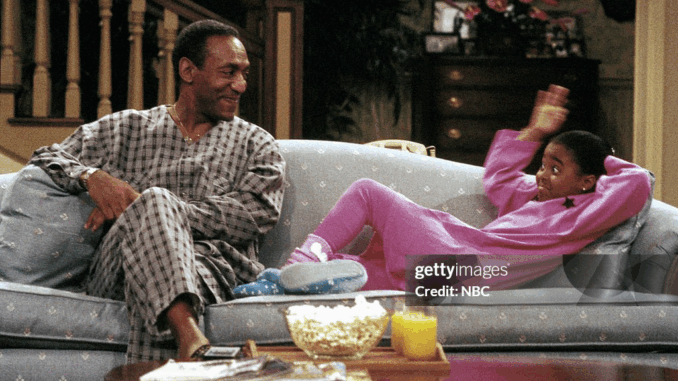
Introduction
In the history of American television, few shows have made as deep and lasting an impression as The Cosby Show. When it premiered in 1984, it shattered stereotypes, rewrote the rules for sitcoms, and brought a fresh, uplifting narrative to millions of homes each week. Though its legacy has become complex in recent years, its role as a trailblazer for on-screen diversity and family-centered storytelling remains indisputable.
Television’s Cultural Reset
Before The Cosby Show, representations of African-American families on TV were often limited, one-dimensional, or steeped in struggle. Then came the Huxtables—a smart, stylish, and successful Black family living in Brooklyn. The father, Dr. Heathcliff Huxtable, was a lovable physician with a playful spirit. His wife, Clair, was a brilliant, assertive attorney and a paragon of Black womanhood. Together, they raised five children in a home full of discipline, humor, and love.
The show didn’t center on trauma or hardship. Instead, it showcased Black excellence and everyday joys—creating a powerful counter-narrative to the limited portrayals of the time. It was a revolution not just in content, but in tone.
More Than Just Entertainment
What made The Cosby Show extraordinary was its ability to educate while entertaining. Episodes often included subtle life lessons about respect, responsibility, honesty, and self-identity. The show embraced African-American culture through music, fashion, and even art—often featuring jazz interludes, dance sequences, and nods to Black history.
It also emphasized education in profound ways. The children’s academic challenges were common storylines, and the show proudly referenced historically Black colleges and universities (HBCUs), influencing real-life enrollment numbers during its peak years.
The Power of Representation
By presenting a positive, relatable Black family on primetime TV, The Cosby Show redefined what mainstream audiences could connect with. The Huxtables weren’t just role models for Black families—they became America’s family.
Its widespread appeal helped normalize diversity on television. The show opened the door for future hits like A Different World, Living Single, and eventually Black-ish, which all owe a debt to the groundwork Cosby and his team laid.
Controversy and Complicated Reflection
In recent years, the show’s reputation has been clouded by the numerous allegations and criminal charges against its creator, Bill Cosby. These developments have led to pulled reruns, removed syndication deals, and divided public opinion. Can a show that meant so much to so many survive the fall of the man behind it?
This tension lies at the heart of modern discussions on separating art from artist. While Cosby’s legacy has undoubtedly suffered, many argue that the brilliance of The Cosby Show—its writers, cast, themes, and impact—should not be erased.
Conclusion: A Landmark in TV History
The Cosby Show was more than a hit sitcom. It was a cultural force that reshaped how African-Americans were seen—and saw themselves—on screen. Its enduring themes of love, ambition, and family transcend the era it aired in.
Even amid controversy, its influence remains etched into the fabric of American pop culture. For better or worse, The Cosby Show changed television—and that change continues to ripple through the industry today.